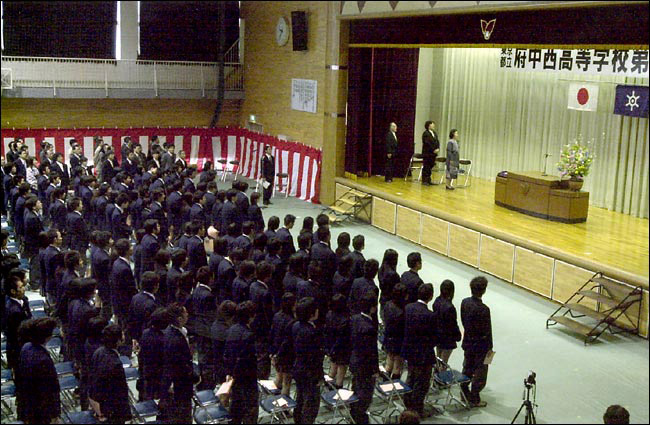Education board vows to still monitor teachers who won't stand for national anthem
(Mainichi Japan) February 2, 2010

High school students and faculty faced Japan's flag and sang the national anthem at a graduation ceremony in Tokyo in March, as required by law. Tokyo Shimbun
The Kanagawa Prefectural Board of Education has decided to continue to keep a record of the names of teachers who refuse to stand up for the national anthem, it has been learned.
During a regular conference on Tuesday, education board members agreed that they will continue to have schools report the names of teachers who refuse to stand up for the national anthem during official school events, despite mounting criticism against the move.
On Jan. 20, a prefectural committee on privacy protection requested the education board to stop using the gathered information, saying the policy infringes on the freedom of thought and creed protected under a prefectural ordinance. However, education authorities countered that their instruction is within the scope of government curriculum guidelines, and that it guarantees freethinking, and maintained the policy for this year. It has also decided to retain the list of teachers it had compiled so far.
"The privacy protection committee was set up to ensure fair public administration," said citizens' group members. "It is unreasonable for the education board to ignore the opinion of the committee."
The education board, however, has also declined their request to comply with the advisory.
In October 2007, teachers filed a complaint against the policy and the privacy protection committee supported it, suggesting that the education board suspend the use of the list. A prefectural council on personal information protection also decided in January 2008 that the list was inappropriate, prompting education authorities to destroy the information it had gathered up to the spring of 2007.
However, the board started keeping the data again in 2008, based on the council's position that the final decision should be left up to the education board.


No comments:
Post a Comment